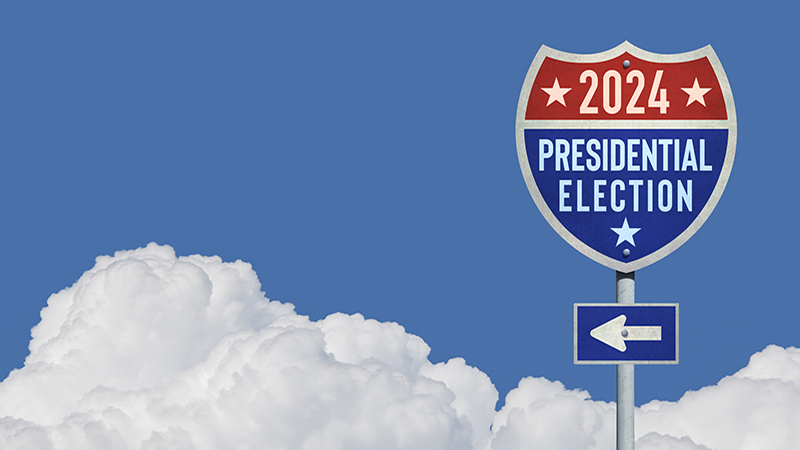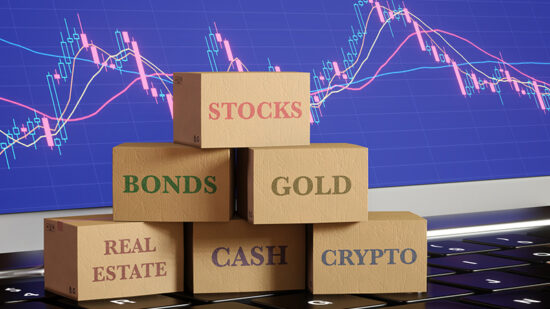It is just over a month until US voters go to the polls. US elections are always important, but this one feels particularly significant. It is possible that chaos will ensue whoever wins, and investors undoubtedly need to be prepared for volatility. But do investors need to panic about the likely outcome?
It is fair to say that neither candidate has given a great deal of policy detail and there are even some areas of commonality. Both candidates are broadly supportive of trade tariffs, for example, and neither is inclined to tackle the burgeoning deficit. However, the key difference is one of magnitude.
On tariffs, for example, Dean Orrico, manager of Middlefield Canadian Income, said: “The Biden/Harris government has continued the trade tariffs that were implemented in the first Trump presidency, but Trump has come out saying he’ll put a tariff on every country the US does business with of around 10% and higher in some areas such as China. That will have an impact on global trade and could be inflationary in nature.”
It is a similar picture with the deficit. According to the Penn Wharton budget model, Harris’s approach would raise the debt by $1-2trn, but Trump’s would increase it by $5-6trn. While both candidates should be constrained by the high primary deficit, and the rising interest burden, it is not clear that this is a particular concern for either side.
David Coombs, fund manager on the Rathbone multi-asset portfolios, said: “It will be interesting to see if Trump tries to be more fiscally responsible in an effort to reduce Treasury yields. Normally you might expect this from a Republican President, following a Democrat. But Trump is no normal Republican.”
See also: Active vs passive: What can investors expect as confidence wanes in magnificent seven?
This creates clear pressures in the bond market, which brings the looming threat of economic instability. David Roberts, co-portfolio manager of the Nedgroup Investments Global Strategic Bond fund, said: “The US Presidential election has so far only promised economic uncertainty. With little to give international bond investors long-term comfort. Thinking the unthinkable, are US Treasuries at danger of becoming uninvestable?
“For those buying into the US bond market there‘s already a risk premium – 1% extra yield than Canada, indeed other than the US, the highest government yields in the G7. That’s what happens with a debt to GDP ratio that is starting to make the Italians look fiscally conservative…Shorter dated bonds seem OK for now, with the Fed set to cut funds rate. Already I own no USD bonds with maturity longer than 7 years. Closer to the election I may go further possibly to zero, or, whisper it…short! International capital is finite. The more reasons investors are given to look elsewhere, the less money flows to Washington.”
Inevitably, if bond yields rise significantly and the US flirts with a financial crisis, it will be destabilising for stockmarkets. However, Edmund Harriss, chief investment officer at Guinness Global Investors, believes tariffs are likely to be a bigger short-term problem.
He added: “For investors, we should be concerned more about 10% tariffs on imports from the rest of the world. This price shock won’t be the problem; it will be the slower growth, reduced business investment, lower business confidence that will be insidious.”
That said, there will be companies that benefit. Richard de Lisle, manager of the VT De Lisle America fund, said Trump could be good for ‘heartland companies’ – those manufacturing businesses that will benefit from the drive to make in America rather than offshoring.
“The tariffs will support all those little industries,” he added. However, Harris is likely to continue Biden’s Inflation Reduction Act, which could also be good for domestic manufacturing.
De Lisle said this should be good for the forgotten areas of the American stockmarket that have been lost in the vogue for the technology giants. He also believes Harris may actively clamp down on the monopoly power of the magnificent seven, given her instinctive mistrust of big business and the potential harms inherent in social media and AI.
The other area of attention would be on energy policy. Coombs said that under Trump it is likely that targets for net-zero will be reduced or eliminated altogether, which would mean lower or no subsidies and fewer sustainability regulations.
See also: Turning point: Have growth stocks finally had their day?
“There could be many losers from this in the sustainable space. On the other hand, of course, this will be a reduction in costs for other businesses,” Coombs said.
Orrico agreed: “Trump has been very clearly more pro-oil and gas, drilling and development, that’s a positive for energy infrastructure businesses.” He believes this could bring down oil and gas prices, which might temper the inflationary impact of tariffs.
Tax cuts, whether they benefit corporates and the wealthy (Trump), or the middle classes (Harris), are unlikely to make a significant difference to stockmarkets. The question for Trump would be the impact on consumer spending should his tariff and spending policy reignite inflation. This could dent economic growth and would spook investors. After a long run of popularity, the US is due a pullback, and this could be the catalyst.
Then there is the wild card element. At various points, Trump has considered removing independence of the central bank, sacking the head of the financial regulator, introducing restrictive trade practices and maintaining debt/GDP above 125%. This flies in the face of good economic practice. It may just be Trump bluster, but it is very difficult to tell and if he implements any of it, it could be destabilising.
Coombs concluded: “The volatility Trump creates via his news conferences and social media proclivities, often creates short-term price movements which we can take advantage of. It’s a circus, of course, which I have a sneaking suspicion he enjoys.” He believes Harries would bring less short-term volatility, but either way, investors need to strap in – it’s going to be quite the ride.








